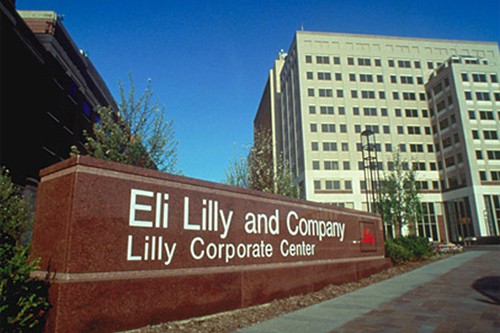
Eli Lilly has agreed a $960m deal to buy CoLucid, claiming rights to a migraine therapy that works in a different way to current drugs.
The takeover revolves around CoLucid’s lead drug lasmiditan, an oral serotonin 5-HT 1F agonist that is due to be filed for approval in 2018 if phase III data – due later this year – are positive.
The drug was originally discovered in Lilly’s labs and out-licensed to CoLucid in 2005. Current triptan migraine therapies such as sumatriptan target different 5-HT receptor subtypes, notably 1B and 1D receptors, and stimulating these leads to constriction of blood vessels in the brain as well as reducing vascular inflammation.
Lasmiditan’s different mechanism means it could become the first drug that works without vasoconstriction, according to Lilly. That means it could be used more safely in migraine sufferers who have cardiovascular disease, it says, and may prove to be effective in some patients who do not get relief from current drugs.
Lasmiditan is currently in the phase III SPARTAN trial comparing three doses of the drug (50mg, 100mg and 200mg) to placebo as an acute treatment for patients with disabling migraine, and results are due later this year.
The main outcome measure in the trial is the proportion of subjects who are headache pain free two hours after dosing. Lilly is already developing a preventative treatment called galcanezumab, a calcitonin gene-related peptide (CGRP) inhibitor which is in phase III testing in migraine and cluster headache and should have first pivotal data read-outs in 2017 and 2018, respectively.
CGRP is a potent vasodilator and is also involved in inflammation and Lilly is competing with the likes of Novartis/Amgen, Teva and Alder Biopharma to bring an inhibitor to market for migraine.
“Lasmiditan is a novel, first-in-class molecule that could represent the first significant innovation for the acute treatment of migraine in more than 20 years,” said David Ricks, Lilly’s president and chief executive. “This innovation, along with galcanezumab, could offer important options for the millions of patients suffering from migraine.”
Analysts have predicted that lasmiditan and galcanezumab could bring in $700m and $900m respectively at peak for Lilly, although for lasmiditan much will hinge on pricing and how strongly the company can position the new drug versus generic triptans.




